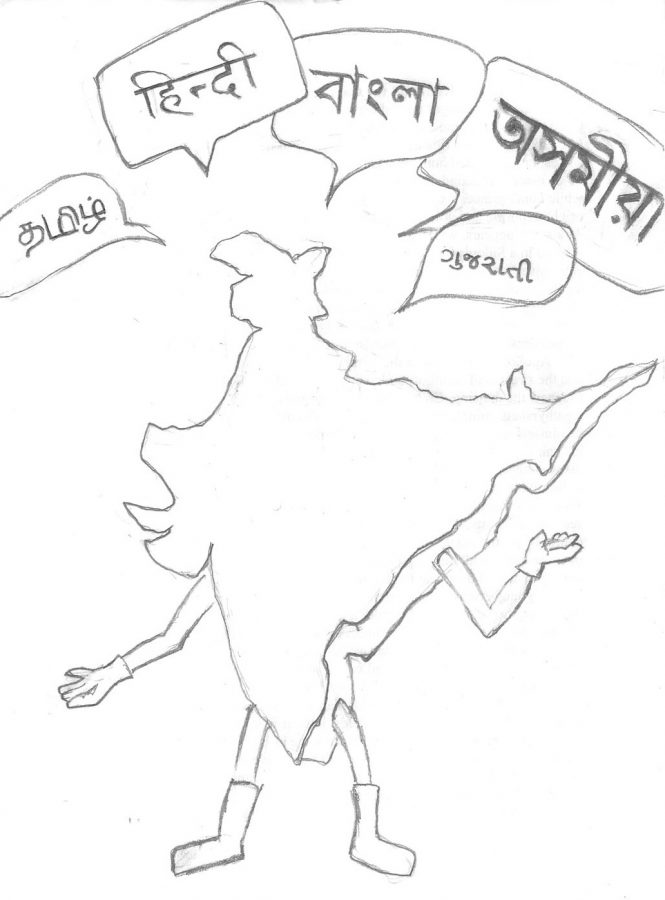
There are 49 countries in Asia, and over two thousand languages are spoken throughout the continent. Yet people continue to prove that they are unaware of the vast diversity that exists in the largest continent in the world. It is both a disgrace and an insult that people from one of the world’s most developed countries, the United States, are oblivious to the different cultures and countries of Asia.
It is astonishing that a first world country, one of the superpowers of the world, has citizens who are oblivious to important aspects of other cultures and that Americans do not bother to look beyond the bubble of their own lives. The entire Asian culture, rich with diversity, is sadly not cared for by many Americans. This relaxed trend is often seen amongst students. Students may grow up surrounded by jokes that group Asian students who have “slanting eyes” as Chinese. The jokes may seem like harmless humor at the time, but they can be extremely insulting to a person of Chinese heritage.
This type of cultural ignorance exists all over the world and is not only limited to America, however, America is particularly significant because it has the ability to set trends for other countries.
This past May, I moved back to the U.S. after living in India for nine years. Classmates welcomed me with questions, asking whether I knew how to speak “Indian.” It would be understandable if these questions were asked by young school children, but these questions were asked by my high school classmates.
I was more than shocked at how detached from the rest of the world America’s youth had become. Can I speak “Indian”? Only as much as Americans can speak “American.” I am, however, fluent in two Indian Languages: Hindi and Bengali.
Just as China houses people of different languages and dialects such as Gan, Mandarin and Jin, India has its own diverse set of languages like Tamil, Hindi, Bengali, Gujarati, Assamese, etc. It pains me to say that some people in Western countries are not only forgetting about these varieties, but are subsequently overlooking the important diversity of India by doing so. Each language adds something rich to India, and being ignorant of them is an insult to a crucial part of Indian culture.
Ideally, race, undoubtedly a significant aspect in all of our lives, should not affect how we perceive and treat others. We should become educated about different cultures to show that we respect other people and where they come from.
If we choose to remain ignorant and continue calling every “slant-eyed” person Chinese and every “dark-skinned” person Indian, we, as a nation, will have failed to maintain our exemplary role for other countries.
By NEEL MUKHOPADHYAY
Staff Writer
Categories:
No, I do not speak “Indian”
December 13, 2013
2
0
Donate to Sword & Shield
$180
$1000
Contributed
Our Goal
Your donation will support the student journalists of University High School. Your contribution will allow us to purchase equipment and cover our annual website hosting costs.










Ahan Ghosh • Jan 7, 2014 at 9:25 am
So you believe that the USA sets examples for other countries?
It is true that the ignorance of the general American population towards the cultures of the world is very disappointing but it is in fact a very petty issue. Doesn’t the USA already lose the title of being ‘exemplary’ every time it bombs innocent people or declares wars on entire nations in the name of democracy?
Derrick • May 21, 2015 at 5:58 pm
True, but that is a whole different level of issues. Cultural norms and the expectations of society are shaped, for the most part, independent of political issues.
By this of, course, I don’t mean that political issues do not fuel prejudices, as is clearly countered by the racism created by slavery and the stereotyping fueled by the war on terror. What I do mean is that American culture is IDEALLY detached from any political agendas – people knowing about other cultures does not make bombings okay, but it does make American cultural knowledge okay.
Additionally, America is not the only country that participates in wars or bombings, so it’s not as if the US is the one and only country touting its politics and fighting for it – many countries are currently doing this, and they all are equally responsible for their actions. The level of harm, though, is completely irrelevant to the issue in Mukhopadhyay’s article – the US government bombing a country has nothing to do with the importance of a high school student (who is clearly quite detached from the bombing process) knowing about other countries.